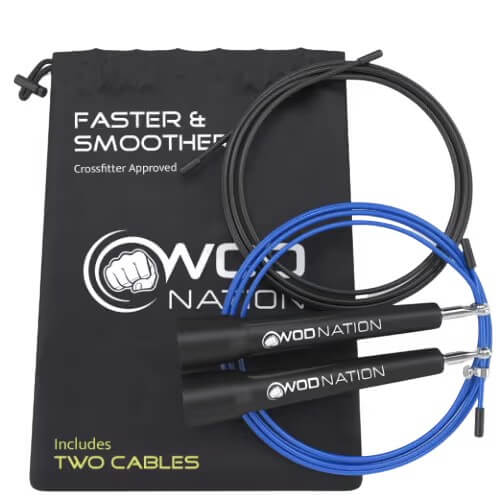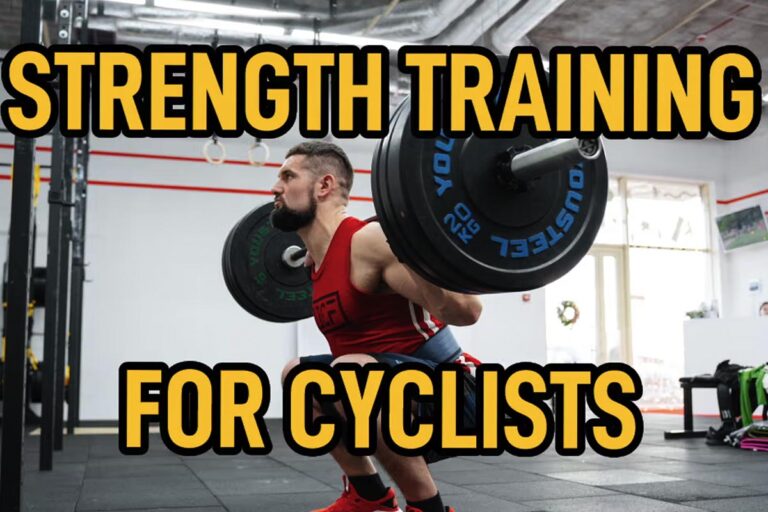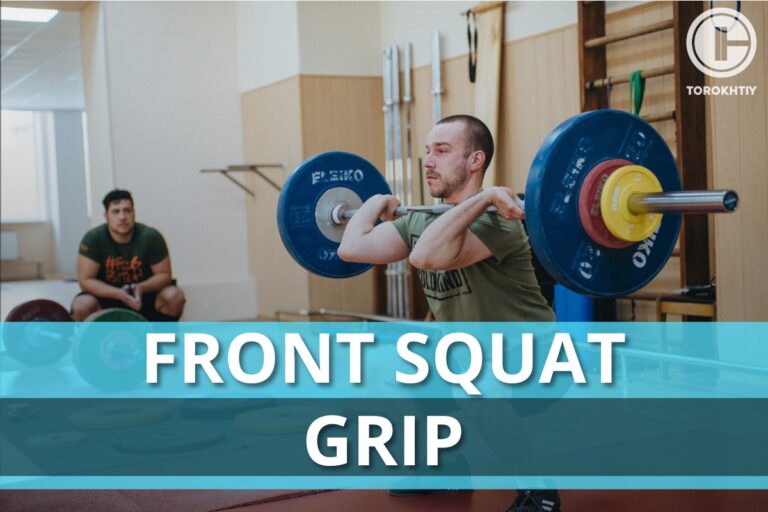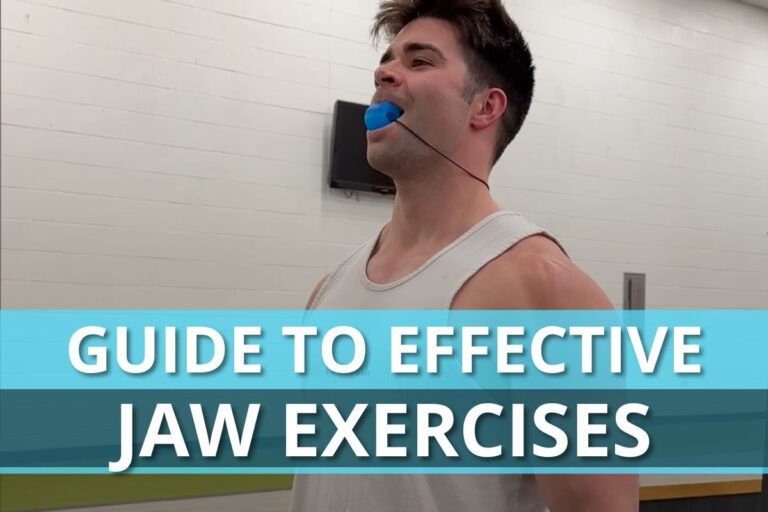Jumping Jacks vs Jump Rope: In-Depth Look
With jumping jacks vs jump rope, you will find several benefits, a lot of which overlap between the two forms of exercises. Each movement has its own pros and cons list. However, there are a few key differences between the workouts that may persuade you to pick one over the other.
Jump rope workouts are time efficient cardio workouts that provide you with strength and muscle gains in key areas of your legs. However, it takes time getting used to the skipping movement. Jumping jacks are easier but also have cardio benefits.
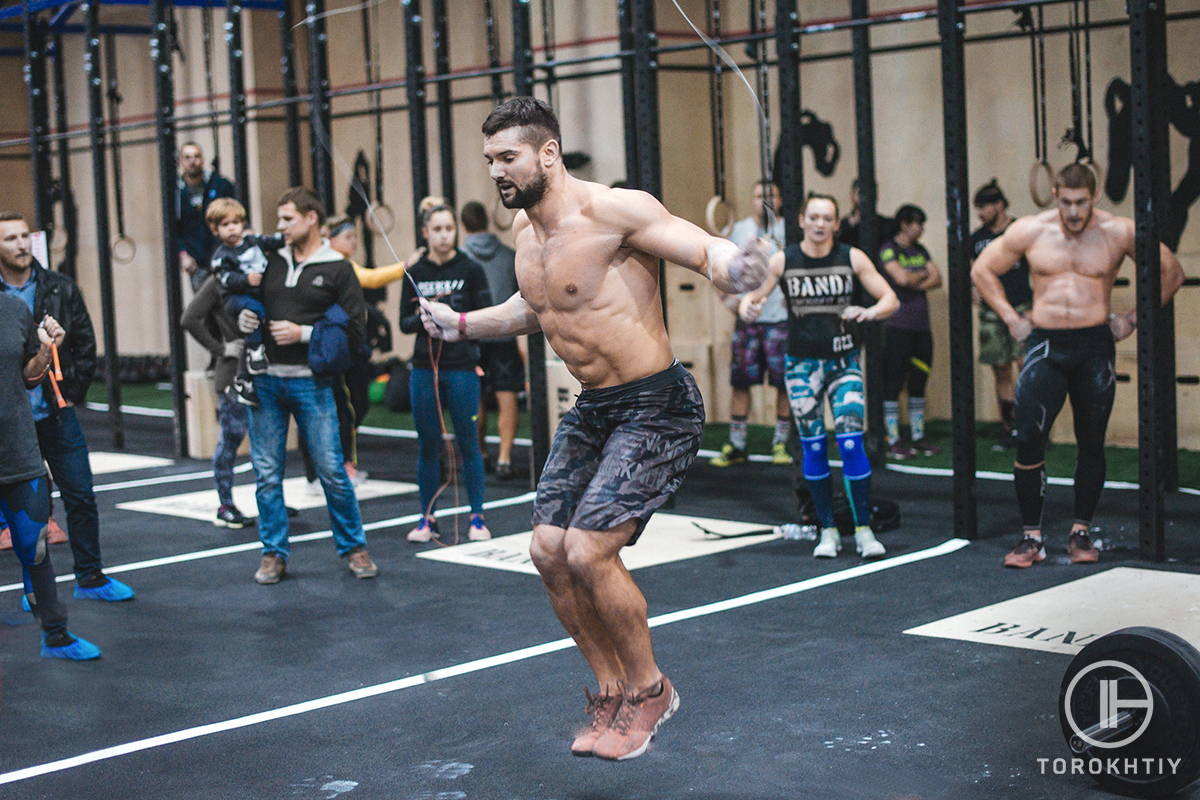
Why Should You Jump Rope?
Jumping rope has several benefits. One of the most common uses of a jump rope is to lose weight. You might prefer a jump rope over other cardio machines and exercise for this purpose because it’s more time efficient as you can burn more calories in a shorter amount of time, and it’s a cheaper alternative to the big pieces of equipment like treadmills and elliptical machines. Jump rope also improves your cardio and endurance, both in the short term with interval training and long term with a longer jump rope workout.
Jump rope is also a great way to train your athleticism. One of the best uses of a jump rope is to increase your speed and power, and this is achieved through working the triple extension muscles in your body. These include your knees, ankles, and hips. As you perform various jump rope exercises, these three areas get worked really well, along with your glutes, too.
Another benefit of jumping rope is it works several key areas in your lower body. This includes muscles, tendons, and joints in your knees, ankles, and feet. We often neglect these areas in a typical training split, so there can be muscle imbalances and weaknesses that a jump rope can address better than most other exercises.
Jumping rope also does wonders for your balance and agility as you build up toward single leg hops and even double unders.
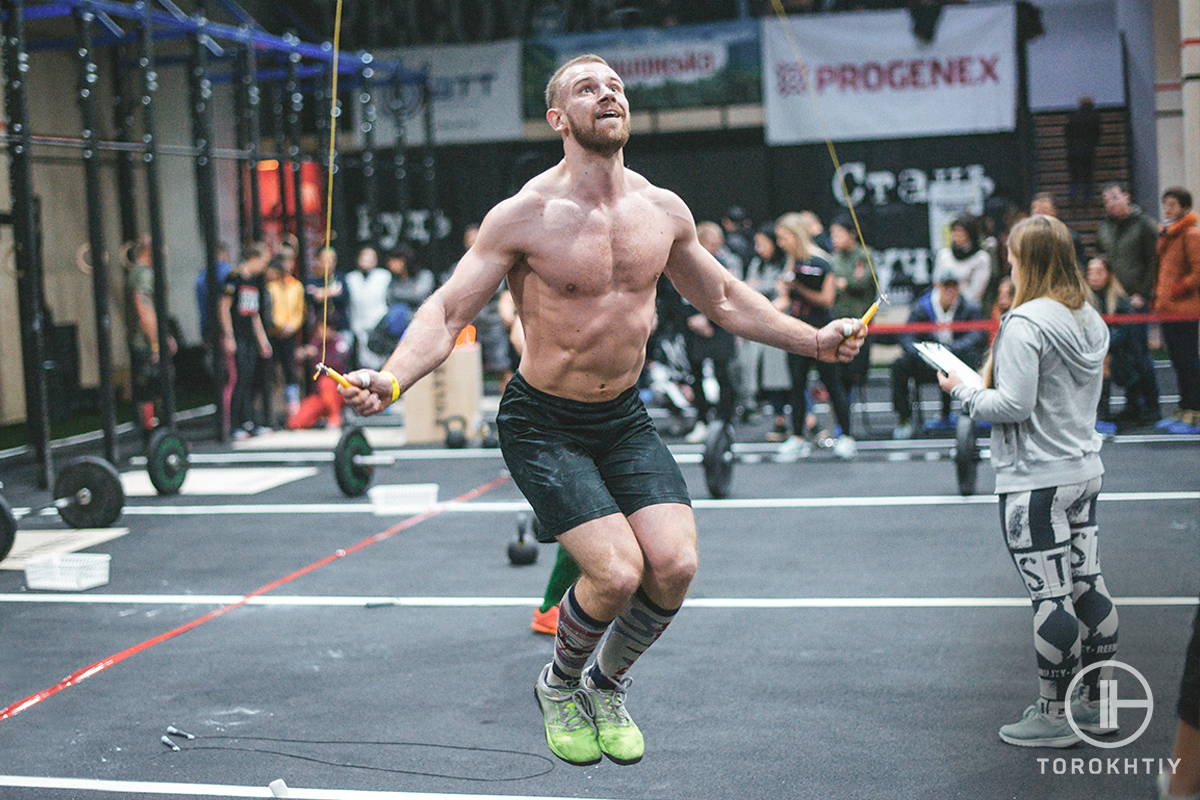
Positives:
Could be better:
The Jump Rope We Recommend
The WOD Nation Speed Jump Rope is one of the best jump ropes on the market. They designed the rope to be stable and thin, so you can build a skipping rhythm easily and keep it going for the duration of your workout.
Even the handles are lightweight and have metal ball bearings, which allow you to seamlessly twist the rope and get a smoother workout. The rope is made of coated steel cable, which is excellent for various kinds of jump rope exercises like single hops and even double unders.
The WOD Nation Speed Jump Rope also comes with replacement cables, so if you need to change your original cables, you can do so without an additional cost.
Why Should You Perform Jumping Jacks?
One of the best things about a jumping jack is that almost everyone can do it or has done it in their life. It’s an exercise you learn as a kid and can perform it throughout your life. It has several benefits, including a low-impact cardio exercise. Jumping jacks won’t take a toll on your body, while spiking your heart rate and getting you to sweat during a long form jumping jack routine.
Another benefit is that you can perform a jumping jack anywhere. Whether it’s in your room, or outside in a park, or at a gym. You always have the option to perform jumping jacks as either your cardio routine or a warm up prior to your exercise.
It’s also a good full body movement as the jumping portion works several lower body muscles, while your upper body is also moving and working. This can even include your core if you keep it engaged during the workout.
There are also several ways to perform your jumping jack routine. You can do the typical long form where you do jumping jacks for a higher rep count that might even go up to a hundred or more. This is great to increase your cardio. But you could also do interval training with jumping jacks where you try to max out in a shorter time. For example, trying to do the maximum amount of jumping jacks in 60 seconds and doing several rounds of this.

Positives:
Could be better:
Jumping Jacks or Jump Rope or Both?
1. Progression
A big difference between a jumping jack and jump rope is the ability to make constant progression in your workout. Realistically, you will do upwards of a 100 jumping jacks rather quickly. This also involves time efficiency, as you will have to do several hundred jumping jacks to keep progressing.
While with a jump rope, even if you progress to a certain point with skipping rope, you can vary the movement to single hops, double unders, side-to-side jumps, and other skipping routines to keep your progress going. While getting a great cardio workout for your time.
2. Variety
The variety of exercises and movements you can do is another major difference between jumping jacks and jump rope. With jumping jacks, you are limited to just one type of exercise. This might get boring or stale after a while. However, with a jump rope, you can play around with the rhythm of your skipping to change your exercises to single hops or side-to-side jumps and other variations to keep your workout routine fun and interesting.
3. Learning Curve
A jumping jack is definitely easier to perform. Almost all age groups can perform a jumping jack, so it’s easier to pick up and add a jumping jack to your workout routine. However, with a jump rope, you might have a learning curve where in the first few tries and even weeks, you’re still learning how to properly get into a skipping rhythm. So, the initial benefits are easier to get with a jumping jack. While you might have to wait a little before seeing the benefits from a jump rope.
FAQs
Are Jumping Jacks As Good As Jumping Rope?
The short answer would be no. A jump rope workout will burn more calories and provide you with more muscle gains along with coordination, balance, and agility benefits compared to jumping jacks. A jump rope is also a more time efficient cardio workout compared to jumping jacks.
Can Jumping Jacks Burn Fat?
Jumping jacks can burn fat because you will feel a spike in your heart rate and get a good cardio workout. It also depends on your fitness level. A beginner will get more of a cardio workout out of simple jumping jacks compared to a more advanced athlete.
Conclusion
Jump rope vs jumping jacks isn’t as clear cut as it sounds as both exercises have their merits, along with some cons as well. It mainly depends on your age group, level of exercise ability, and your workout goals with picking between the two.
What’s your favourite jump rope routine? How often and how do you incorporate jumping jacks to your workout program? Between the two, which gives you a harder cardio workout?
Let’s discuss all of this and any other questions you might have in the comment section below!
Also read:
- How To Speed Jump Rope
- How To Criss Cross Jump Rope
- Types Of Jump Ropes
- Jump Rope vs Other Exercises
- Single Unders
- How Long Should A Jump Rope Be
- Weighted Jump Rope Benefits
References:
- Jump Rope Training // BodyBuilding: https://www.bodybuilding.com/fun/rossboxing4.htm
- Jumping Jack // BodyBuilding: https://www.bodybuilding.com/exercises/jumping-jacks
Why Trust Us?
With over 20 years in Olympic Weightlifting, our team does its best to provide the audience with ultimate support and meet the needs and requirements of advanced athletes and professional lifters, as well as people who strive to open new opportunities and develop their physical capabilities with us.
By trusting the recommendations of our certified experts in coaching, nutrition, dietology, and sports training programming, as well as scientific consultants, and physiotherapists, we provide you with thorough, well-considered, and scientifically proven content. All the information given in the articles concerning workout programming, separate exercises, and athletic performance, in general, is based on verified data. We ensure that you can rely on our professionals’ pieces of advice and recommendations that can be treated as personalized ones which will benefit you and fully meet your needs.
The product testing process is described in more detail here
Author: Ihor Shymechko
Pro Olympic Weightlifter, Coach
Best Results: Snatch – 208 kg,
C&J – 240 kg
Ihor has been a professional weightlifter since 1996, boasting over two decades of competition experience. His notable achievements include clinching the European Championship in 2009 and securing a silver medal in the 105kg division at the Senior World Championships in 2011. Ihor represented his country in the 2008, 2012, and 2016 Summer Olympics. After retiring from competitive weightlifting, he transitioned to coaching, leveraging his vast experience to guide athletes who now compete on both national and international stages.

